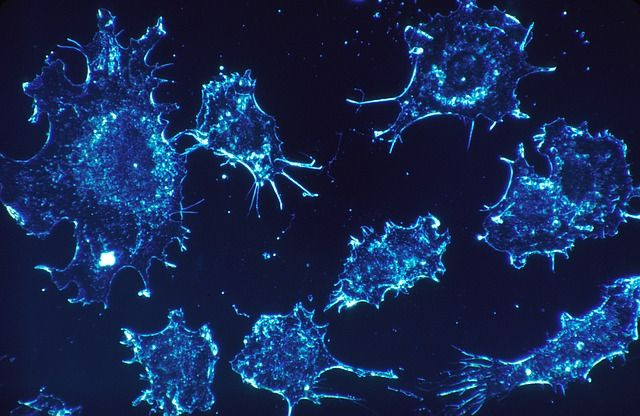Cancer Cure Research 2017: ‘Dual-Activity’ Drugs Hits Multiple Cancer-Cell Targets

A newly published study has identified a biological pathway that could eventually lead to anti-cancer drugs. This would be an innovative approach to fighting the disease.
Scientists have long been aware that MYC is one of the most frequently altered genes found in cancer — so why isn’t it being explored more in the search for a treatment?
Read: Pancreatic Cancer Cure Research: Scientists Identify Protein Linked To Aggressive Deadly Metastasis
According to a press release from the University of California in San Diego, previous studies have found MYC to be a very complicated and an elusive therapeutic target. However these new findings open the door for a potential new class of anti-cancer drugs. These futuristic pharmaceuticals would inhibit two or more molecular targets at once. The result? An approach that's more effective in killing cancer cells, and is safer for the patient.
Researchers studied cell and mouse models. The team actually engineered a small molecule designed to “simultaneously disrupt two key MYC-mediating factors,” the release reported.
Results showed that this process successfully inhibited cancer growth and metastasis. In addition, it did so with less toxicity (damaging side effects) to the patient.
Read: Cancer Cure Research 2017: Can Salmonella Destroy Brain Disease?
"This is a 'first in class' approach to achieve a maximum inhibition of MYC in the treatment of the multitude of cancers known to be driven by the MYC oncogene," said study co-senior author Donald L. Durden, MD, PhD, according to the release . "These findings suggest that dual-activity inhibitors are a highly promising lead compound for developing new anticancer therapeutics."
In 2016, there were an estimated 595,690 cancer deaths in the US, the American Cancer Society reported.
Source: Andrews FA, Singh AR, Joshi S, Smith CA, Morales GA, Garlich JR, Durden DL, Kutateladze TG. Dual-activity PI3K–BRD4 inhibitor for the orthogonal inhibition of MYC to block tumor growth and metastasis. Proceedings of the National Academy of Sciences. 2017.
Read Also:
Breast Cancer Treatment 2017: Drug May Halt Metastasis In Triple-Negative Tumors
Chemotherapy Success Rate: Can We Predict How Cancer Cells Respond To Treatment



























